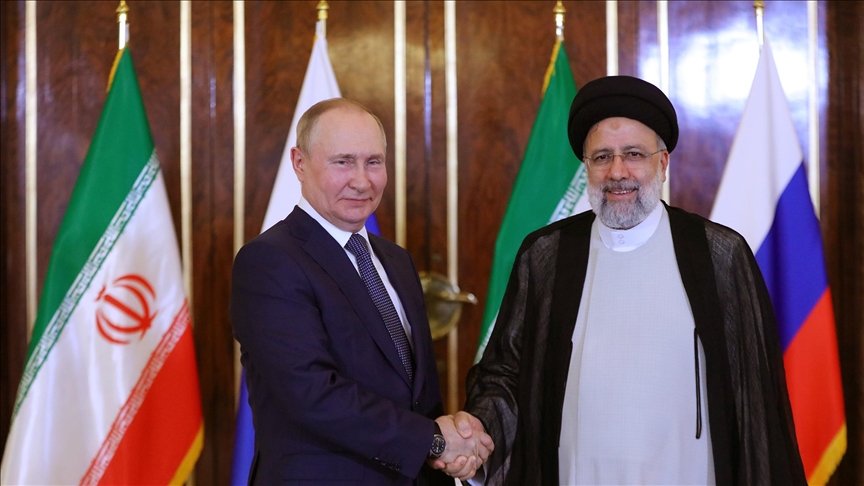by Benyamin Poghosyan
As the Russia – West confrontation continues without any signs of an end, many experts, academicians, and politicians seek to grasp the contours of the emerging new world order. Some believe that, in the end, a new bipolar world will emerge dominated by China and the US, while Russia will be forced to choose between these states based on the outcome of the Russia – Ukraine war. If the West can impose a strategic defeat on Russia and bring about a regime change, Russia will be in the West’s camp against China. Otherwise, the Kremlin will be a junior partner of China, supplying Beijing with cheap raw materials and getting access to Chinese funds and technologies.
Others argue that the future world order will be multipolar, with no fixed alliances, and several key players will pursue temporary cooperation with each other based on short-term needs. One thing is clear: the finalization of the new world order will take years and decades, and till then, instability and strategic ambiguity will be the primary features of the world.
Read also
Meanwhile, several non-Western organizations continue to increase their power and potential, in line with the strategic pattern of a shift of power from the West to the East. The Shanghai Cooperation Organization (SCO) is among these new groupings. The organization was established in 2001 and was perceived as a tool to manage Russia – China relations in Central Asia. At that time, China was still an emerging regional power, while Russia still was seeking ways to cooperate with the West. However, over the last 10-15 years, the SCO gained additional momentum as one of the emerging poles of the changing world order, adding economic cooperation and anti-terrorist activities to its core functions.
The significant milestone for the organization was the full membership of India and Pakistan, which transformed the SCO into a significant regional actor in Asia, playing the role of another platform for discussions between Russia, China, and India, alongside the BRICS (Brazil, Russia, India, China and South Africa) and Russia – China – India trilateral dialogues. India is cautious not to be associated with anything anti-Western, as it is interested in continuing its strategic partnership with the US. However, India also does not want the return to a unipolar world dominated by the US, nor is it interested in finding itself in a new bipolar US–China cold war, where it has to choose between Washington and Beijing.
In this context, the full membership of Iran in the SCO, finalized during the July 2023 summit, will inject additional momentum into the organization, making it a more powerful vehicle for cooperation and dialogue in Asia. Given the tensions between Tehran and Washington, Iran’s membership may add more anti-Western patterns to the organization. However, India and Central Asian republics will be careful not to cross the line between fostering regional cooperation and pursuing a blatant anti-Western policy. Meanwhile, as Iran has friendly relations with Russia, China, and India, its membership in the SCO may play a positive role in balancing the interests of these three behemoths.
Iran’s membership in SCO will also impact the regional geopolitics of the South Caucasus. This region gradually is emerging as one of the primary areas of US – Russia confrontation in the post-Soviet world, as Washington seeks to decrease Russia’s influence and presence there. Russia also faces increased competition from Turkey as Ankara pushes forward its strategic partnership with Azerbaijan and trilateral Azerbaijan – Georgia – Turkey cooperation.
Meanwhile, Iran has growing concerns about the potential decrease of Russia’s role in the region, as for the Iranians a weaker Russia means a more assertive US. Iran and Russia still have contradictory stances based on historical mistrust, diverging interests in Syria, and differences in their approach to Israel. However, as Iran remains the top adversary of Israel, and Iran – US relations are in a low-key mode, both Russia and Iran are interested in decreased US influence and presence in the region, which also relates to Turkish activities in South Caucasus.
In this context, Iran’s full membership in the SCO increases the organization’s presence in the region, as Russia embraces the South Caucasus from the north, while Iran encircles it from the south. Iran’s membership in the SCO may also affect ongoing Armenia – Azerbaijan negotiations and the future of Nagorno Karabakh. Azerbaijan pursues power politics, rejecting any possibility of international presence in Nagorno Karabakh and any special rights for Armenians while threatening Armenia with new attacks if Yerevan fails to sign a peace agreement based on Azerbaijani terms.
Meanwhile, the Armenia – Azerbaijan and Armenia – Turkey normalization process will have a regional impact, as it can decrease Russian influence over Yerevan and kickstart a gradual push of Russia out of Armenia. However, the primary problem for Armenia is not the normalization process itself but the fact that, as of now, any agreement is possible only if Armenia accepts Azerbaijani demands while dropping any tangible requirements of securing the rights of Armenians in Nagorno Karabakh. In this sense, the increased presence of the SCO around the South Caucasus may give Armenia additional leverage during the negotiation process to counter Azerbaijani demands and send a message to Western partners that Yerevan has alternative options.





















































